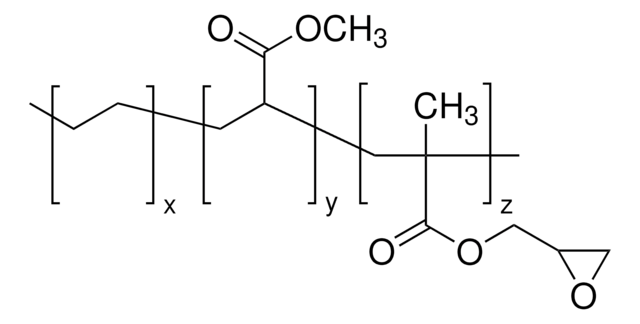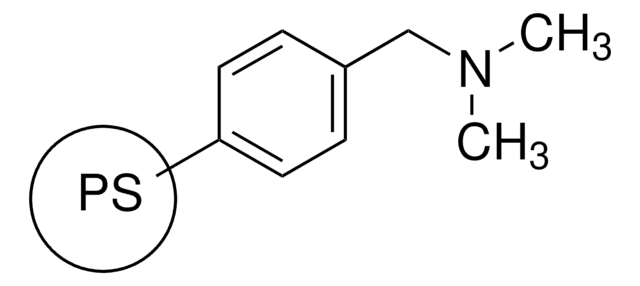About This Item
Recommended Products
form
solid
Quality Level
mol wt
Mn 10,000-20,000
refractive index
n20/D 1.381
mp
274-280 °C
SMILES string
O1C(C1)COC(=O)C(=C)C
InChI
1S/C7H10O3/c1-5(2)7(8)10-4-6-3-9-6/h6H,1,3-4H2,2H3
InChI key
VOZRXNHHFUQHIL-UHFFFAOYSA-N
Looking for similar products? Visit Product Comparison Guide
Signal Word
Warning
Hazard Statements
Precautionary Statements
Hazard Classifications
Acute Tox. 4 Oral - Eye Irrit. 2
Storage Class Code
11 - Combustible Solids
WGK
WGK 1
Flash Point(F)
Not applicable
Flash Point(C)
Not applicable
Choose from one of the most recent versions:
Already Own This Product?
Find documentation for the products that you have recently purchased in the Document Library.
Articles
The present publication focuses on synthesis and characterization of nanothick, chemically grafted polymer films (polymer brushes) on various inorganic and polymeric substrates.
The present publication focuses on synthesis and characterization of nanothick, chemically grafted polymer films (polymer brushes) on various inorganic and polymeric substrates.
The present publication focuses on synthesis and characterization of nanothick, chemically grafted polymer films (polymer brushes) on various inorganic and polymeric substrates.
The present publication focuses on synthesis and characterization of nanothick, chemically grafted polymer films (polymer brushes) on various inorganic and polymeric substrates.
Our team of scientists has experience in all areas of research including Life Science, Material Science, Chemical Synthesis, Chromatography, Analytical and many others.
Contact Technical Service







